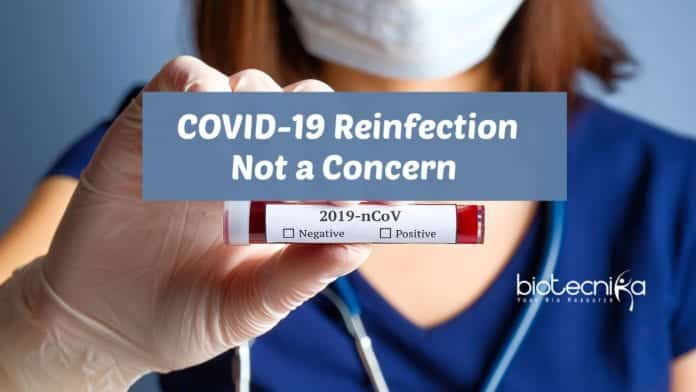Coronavirus Reinfection is Not a Concern – Monkey Study Suggests
Concerns regarding SARS-CoV-2 infection have reached an all-time high in the US and around the globe. The possibility of being infected gets on every person’s mind with rising numbers of coronavirus positive cases, hospitalizations, and fatalities – and “social distancing” is currently a household word.
The emerging of numerous personal cases mostly out of China and Japan of patients who recovered after coronavirus infection just to fall ill again have some concern about the possibility of reinfection.
Currently, a collaboration of Chinese researchers has studied whether or not reinfection with SARS-CoV-2 is feasible using an animal model study (monkey). The group studied whether or not rhesus macaques, non-human primates, can be reinfected with SARS-CoV-2. The study was published as “Reinfection could not occur in SARS-CoV-2 infected rhesus macaques” on the preprint server bioRxiv on March 14, Their result was that there might be no reason to fret about coronavirus reinfection.
The challenge
The study was carried out in 4 adult Chinese rhesus macaques. After intratracheal infection, the monkeys were analyzed at certain intervals of time, the analysis comprises of
measurements such as body weight, body temperature, lung x-rays, sampling of nasal, sera, anal swabs, throat, and primary tissues.As measured by weight-loss, viral replication mainly in the nose, throat, pharynx, gut, and moderate interstitial pneumonia showed that the rhesus monkeys were infected successfully.
One of the monkeys was euthanized seven days after infection to analyze the viral distribution in the body, and to assess histopathological changes in the infected monkeys. Lesions were mostly observed in the lung, which was confirmed by H&E as well as the anti-spike protein of SARS-CoV-2 staining. Mild to moderate interstitial pneumonia was identified in the monkey. Furthermore, a chest x-ray was taken at seven days post-infection which showed mild to bilateral ground-glass pacification which was confirmed by varying degrees of the localized infiltration and interstitial markings on the upper lobe of the right lung.
The group then waited up until the other 3 monkey’s signs and symptoms were eased. The monkeys were free from the infection and it was confirmed by meeting the clinical discharge analysis standards (absence of clinical symptoms and 2 negative RT-PCR test results).
Using the same dose of the SARS-CoV-2 strain, two of the 3 monkeys were reinfected at 29 days post-infection. 1 of the monkeys was kept as a control and was left untreated.
At 5 days post coronavirus reinfection, the viral titer was measured in the monkeys. In 96 nasopharyngeal and anal swabs tests, viral titer was tested negative.
One of the 2 reinfected monkeys was sacrificed to examine the replication of the virus and histological changes. There was no observation of viral replication in all tissues. Additionally, no pathological damages and viral antigen in lung cells were identified in the euthanized monkey.
Comparing with each other, the monkeys that had been reinfected to SARS-CoV-2 resembled the control monkey with no reoccurrence of coronavirus. These research data reveal that primary SARS-CoV-2 infection could shield from subsequent exposures which will have crucial ramifications for designing a vaccine.
How do these data, position themselves with the reports recommending that the patients cured of coronavirus (14%) tested positive after healing?
One point made by the researches is that it is now known whether these people experienced a “reinfection” after recuperation. One explanation to the above question is that the patients were not totally recovered from the infection, in spite of meeting the discharge standards or it could be attributed to the “false negative” RT-PCR test results before their discharge.
The failed rechallenge in this particular study recommends that the positive tests from formerly recuperated and released patients are likely not as a result of coronavirus reinfection and there might be more challenging reasons for the result.






























